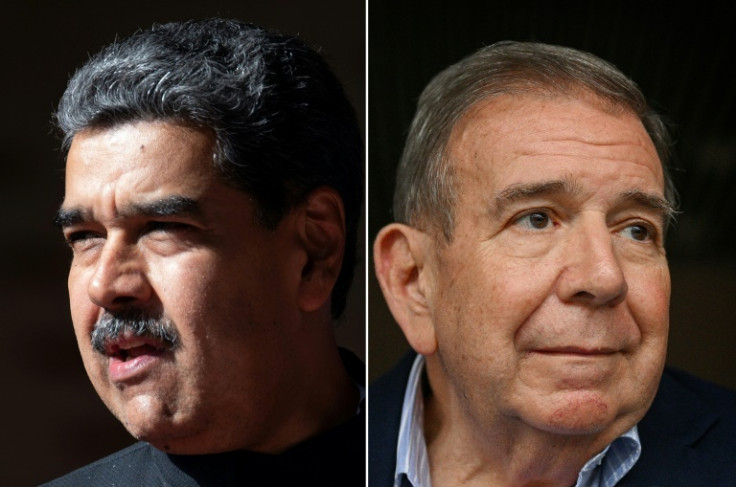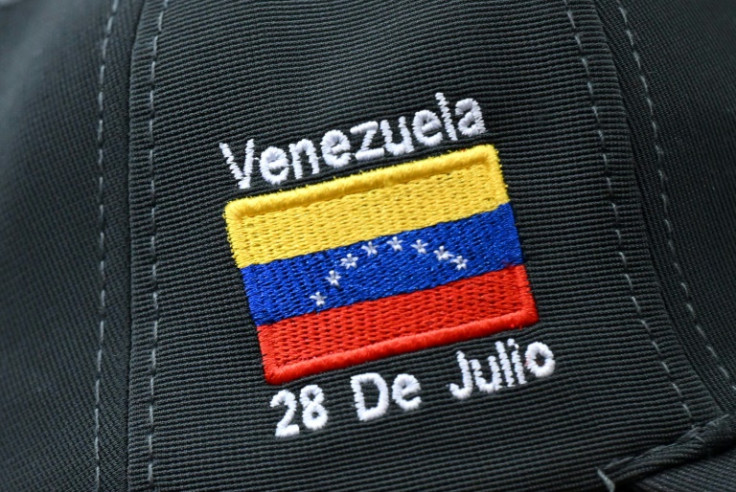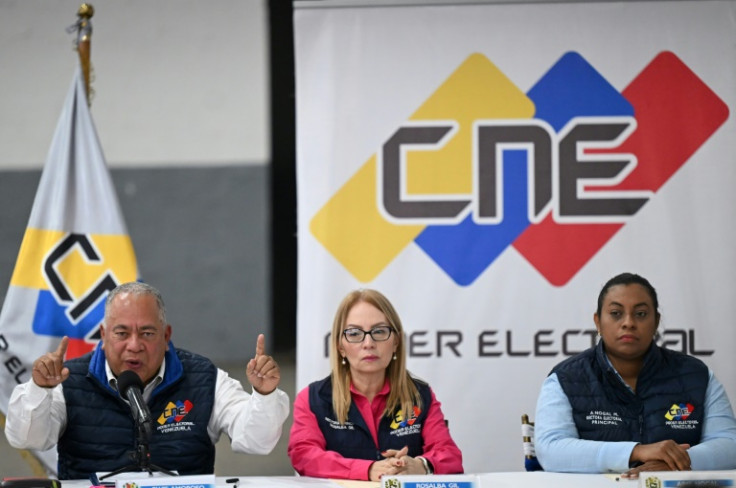Amid Fears Of Foul Play, Venezuela Girds For Uncertain Election

Uncertainty is hanging over Venezuela as it prepares for presidential elections next Sunday that many fear incumbent Nicolas Maduro will attempt to steal from the opposition candidate outshining him in polls.
Maduro, seeking a third six-year term at the helm of the economically devastated country, lags far behind challenger Edmundo Gonzalez Urrutia in stated voter intentions, but is counting on a loyal electoral machinery.
With just over a week to go, Maduro warned Saturday that the vote outcome would decide the country's future: "whether it becomes a peaceful Venezuela or a convulsed, violent and conflict-ridden Venezuela. Peace or war."
With the opposition declaring itself certain of victory, analysts and observers say the regime has already skewed the playing field and will meddle to the end, setting the stage for a contested result and possible post-election violence.
"I think no one is under the illusion that these elections will be free or fair," said Laura Dib, Venezuela program director of the Washington Office on Latin America (WOLA), an NGO promoting human rights.
"We're holding elections in an authoritarian government."
Institutions loyal to 61-year-old Maduro -- who has held office since taking over from Hugo Chavez in 2013 -- have barred wildly popular opposition leader Maria Corina Machado from the race on what she says are trumped-up corruption charges.
Others, too, were disqualified or pulled out, and the opposition Democratic Unitary Platform (PUD) picked the 74-year-old Gonzalez Urrutia, a little-known former diplomat, as a last-minute figurehead.
Eight other candidates all have insignificant polling numbers.
Machado, who overwhelmingly won an opposition primary last year, has campaigned for Gonzalez Urrutia countrywide -- traveling by road, as she is banned from flying, denouncing what she says is unrelenting official harassment of her entourage and supporters.
Last week, Venezuelan rights group Foro Penal reported 102 arrests this year of people linked to the opposition campaign.
It says there are more than 270 "political prisoners" in Venezuela.
The government in Caracas accuses the opposition of conspiring against Maduro, whose 2018 reelection was rejected as illegitimate by most Western and Latin American countries.
Years of sanctions and other pressure have failed to dislodge the president, who enjoys support from a political patronage system and the nation's military leaders, as well as from Cuba, Russia and China.
Maduro has repeatedly vowed that he won't cede power now even as Venezuelans clamor for change. The formerly rich petro-state has seen GDP fall by 80 percent in less than a decade, driving some seven million of its citizens to flee.
The majority of Venezuelans today live on just a few dollars a month, with the healthcare and education systems in total disrepair.
"There is no hope here, no hope for the economy, for jobs, for social prosperity," 20-year-old student Ana Colmenares told AFP. A registered voter, she has only ever lived under the "Chavismo" populist movement of Chavez and Maduro.
The government blames US sanctions for the state of affairs, but observers say the collapse of the country's all-important oil industry started much earlier, the result of deep-rooted corruption and mismanagement.
Under "normal" voting conditions "it is obvious that there will be an extremely wide victory for the opposition," political analyst Luis Salamanca of the Central University of Venezuela told AFP.
But is it possible?
Unlikely, say analysts, especially if Maduro -- his government under investigation for rights abuses by the International Criminal Court -- has no guarantee of immunity.
"Right now, I am skeptical that there are sufficient incentives for Maduro to step down," said Rebecca Hanson, a Venezuela expert with the University of Florida's Center for Latin American Studies.
"I think it is very likely that the government will disqualify Gonzalez as a candidate right before the election," she added.
For Michael Shifter, a senior fellow with the Inter-American Dialogue, Maduro and the ruling United Socialist Party of Venezuela (PSUV) will likely engage in "massive fraud," triggering a political crisis with street protests and international condemnation.
"And I think that we could then begin to see the start of some political negotiation towards... some transition," he told AFP, with even people within Chavismo keen to prevent a total collapse.
Maduro warned last week that Venezuela risks a "bloodbath" if he loses.
Some 21 million Venezuelans are eligible to vote on July 28.
Caracas has withdrawn an invitation to European Union experts to observe the vote, while allowing monitors from the UN and the US-based Carter Center.



© Copyright AFP 2025. All rights reserved.





















